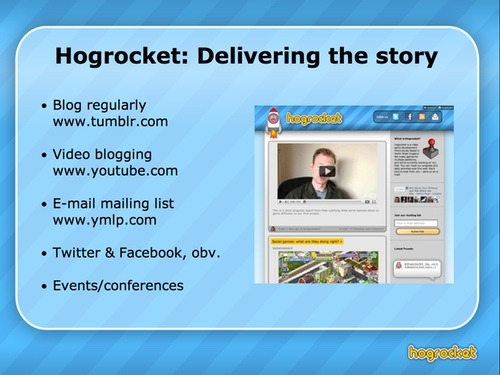- ARPDAUPosted 13 years ago
- What’s an impressive conversion rate? And other stats updatesPosted 13 years ago
- Your quick guide to metricsPosted 13 years ago
Q: Who does the Twitterverse render obsolete? A: The newspaper editor
As Twitter tries to find a business model and newspaper columnists show ‘>how completely they don’t understand current technologies, the newspaper editor is becoming irrelevant
I’ve been asked several times in the last week why I use Twitter, and what is its point. I find Twitter to be one of the most useful pieces of modern technology and when I say this, the answer from the sceptical enquirer is always the same.
“Why do you care what sandwich I had for lunch?”
I don’t. And the question betrays the enquirer’s ignorance, in the same way that anyone saying that email is pointless because of “all those pictures of ducklings swimming in a teacup” demonstrates how little they understand the real benefits of the technology.
My first thought (being British and male) is that Twitter is quite a lot like being in a pub with your mates (only without the beer). The conversation veers from politics and the economy through sports and entertainment to the banal or the funny. It draws me closer to people I already know but crucially (and unlike Facebook and other social networks), it means that I have made connections, if not actual friendships, with people that I didn’t know well or at all before Twitter.
And, like in a pub, bores who talk about themselves all the time, or never listen, or don’t have anything interesting to say get to sit in the corner, nursing a half of mild and wondering why they have no friends.
But I’ve been thinking harder about how Twitter has changed the way I consume media. And what it has really done is render the homepage (and hence the editor) obsolete.
I used to visit a handful of homepages every working day. GamesIndustry.biz, MCV, BBC News, the Financial Times.
I haven’t visited the homepage of any of those sites for weeks.
But I have visited all of those sites frequently, often several times a day. And every time, it’s because one of my Twitter friends (followees?) has written about, discussed or recommended an article. I deeplink straight into the article and start reading.
And it’s not just that I read about stuff I would already have seen. I know about Will Buckley’s nasty snide piece about @lilyroseallen and @aggerscricket. I’ve seen the hard hitting charity advertisement about the effects of the genocide in Rwanda (NSFW – not sexual but violent and disturbing – thanks to @BenParfitt for the link). And I know that the Google building in London is currently on fire.
This is material that previously a newspaper editor would have sorted, filtered and prioritised for me, according to his or her own prejudices (or those of the newspaper’s proprieter).
These days, the Twitterverse does it for me.
This has some profound implications. Obviously, there is a risk that if I only follow people who think like I do, then I’ll only see articles that reinforce my world view. But that’s no worse than only reading the Guardian or the Daily Mail.
Twitter changes how news is spread and disseminated. The front page becomes so much less important than the quality of the article itself. Bad news can no longer be buried on page 17, because if a story is important it will get picked up and re-tweeted in seconds.
But above all, I feel better informed. I discover more interesting information. I learn more than I used to when my news was filtered by “expert” editors. The Twitterverse (or my accurately, my Twitterverse), points me in the direction of things that, in general, I was really glad that I found.
So a big thank you to everyone I follow. Thank you for curating the billions of pages of dross on the Internet and helping me find the needles in the haystack.
To follow Gamesbrief on Twitter, visit http://www.twitter.com/gamesbrief
To follow Nicholas Lovell on Twitter, visit http://www.twitter.com/nicholaslovell














